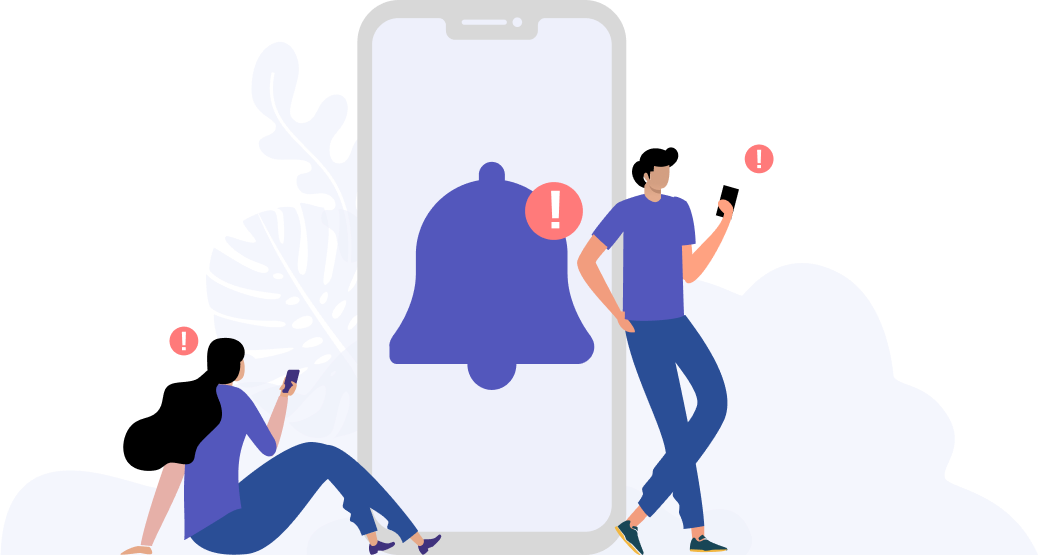Are our smartphones actually making us stupid?

The first iPhone in the world was released in 2007. By 2025, it is estimated that 3 in 4 mobile connections will operate on smartphones. The smartphone boom is real and has been much raved about – for good reason. Smartphones have undoubtedly made our lives exceedingly easier and more convenient.
On your phone, you can pay your bills, check your email, and perform numerous other tasks in a manner that saves time and reduces manual labour. With information and services so within reach of our fingertips, we become efficient and more connected than before.
However, this might cost us more than we know. These increased conveniences may be causing us to become stupider.
“What was I doing earlier?”: Diminished Attention Span
One of the most common effects smartphones have on users is being a distraction.
The flipside of on-the-go accessibility of information and entertainment is that it feeds our need to be constantly occupied and updated. Find yourself looking at your phone once every few minutes? The fear of missing out on our friends’ updates and the desire to be doing something with your time, all the time, is driving us to become more glued to our screens. Our social media timelines, curated news feeds, and even advertisements are catered to our tastes through algorithms, designed to keep your eyes glued to the screen.
Research shows that even when you are not using your smartphone, its presence itself is enough to impact your task performance significantly. Participants with their phones in their pockets or on the table in front of them while performing the tasks did worse than those who had their phones in another room.
And even if you’ve managed to resist the temptation of checking your phone, beware – its mere presence could affect the amount of attention you have to complete your tasks at hand.
This issue has ramifications in productivity, and it’s clear that this is an actual problem with the development of numerous productivity applications like Forest which have become more popular over the years.
“Why can’t I perform this task?”: Restricted Motor Skills
Gone are the days of hitting that ‘7’ button four times to type the letter ‘s’. The touchscreen interface has streamlined the smartphone user experience to tapping and swiping. All’s well for ease of use and convenience, but there’s a dark side to this simplicity.
Children raised on an electronic diet may lose out on engaging in hands-on activities and play. Constantly engaging with a two-dimensional screen means that children lack development in both sensorimotor and visual-motor skills. To put it simply, this could affect children’s development in basic activities like writing and information-processing, which could impair their learning as they grow.
Even adults are having a hard time. The increased use of technology could lead to future doctors have difficulty in picking up the dexterity needed for surgery, as they face trouble performing essential surgical tasks like sewing.
“I can’t remember!”: Fading Memory
Ever forgot the name of a song you liked? With a few searches online you typically would be able to find the answer. Gradually, over time, you may become increasingly reliant on the internet to find the answers to your questions – after all, if you forget, you can simply search it up. With such easy access to information, smartphone usage has been related to less learning and retention.
Searching for answers on the internet has also given rise to the aptly named “Google effect”, which is when we become so dependent on the search engine for information that it affects our ability to recall. Hence, when faced with difficult questions, we tend to recall where we can find the information needed, instead of the answer itself.
A Balancing Act
It may seem like smartphone usage only causes our cognitive functions to deteriorate, but don’t worry. Technology can be harnessed to develop our cognitive functioning and facilitate our learning! It’s all a matter of balance.
The problem is when devices are overused beyond healthy limits, which contributes to the impairment of our ability to think. It’s essential for devices to be used in moderation, starting from a young age, so the cognitive costs of heavy smartphone use can be minimised when growing older.
A viable solution to tackle this problem at its root would be a parental control application. Ensuring your child takes regular device breaks is the first step towards lifelong healthy device usage.
Tools Designed for Healthier Eyes
Explore our specifically designed products and services backed by eye health professionals to help keep your children safe online and their eyes healthy.





